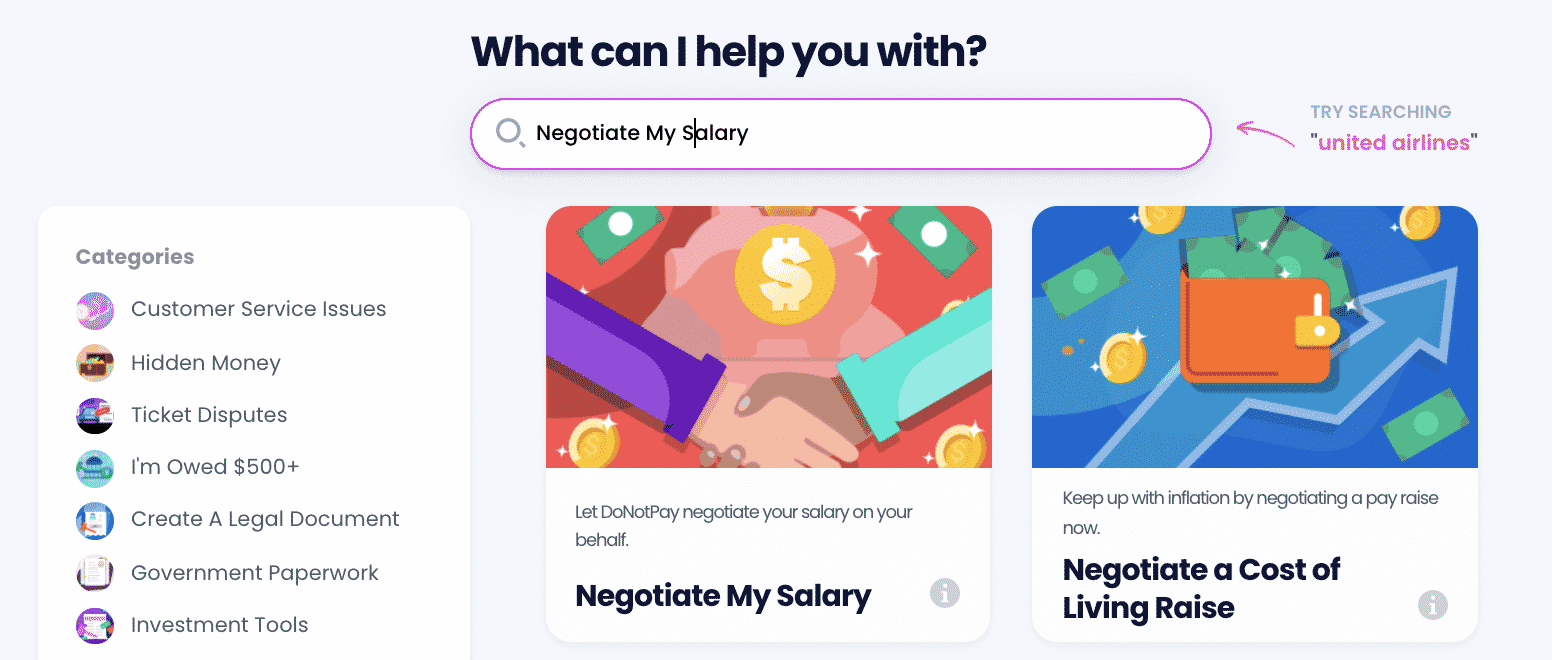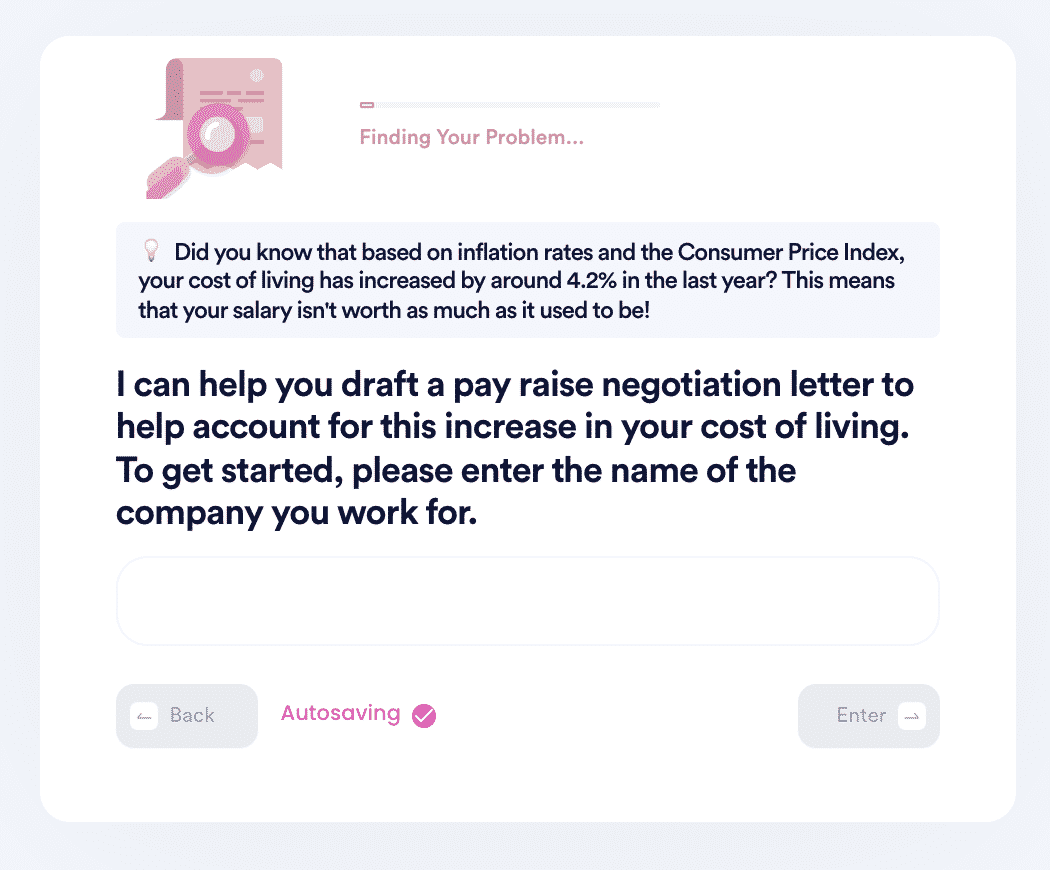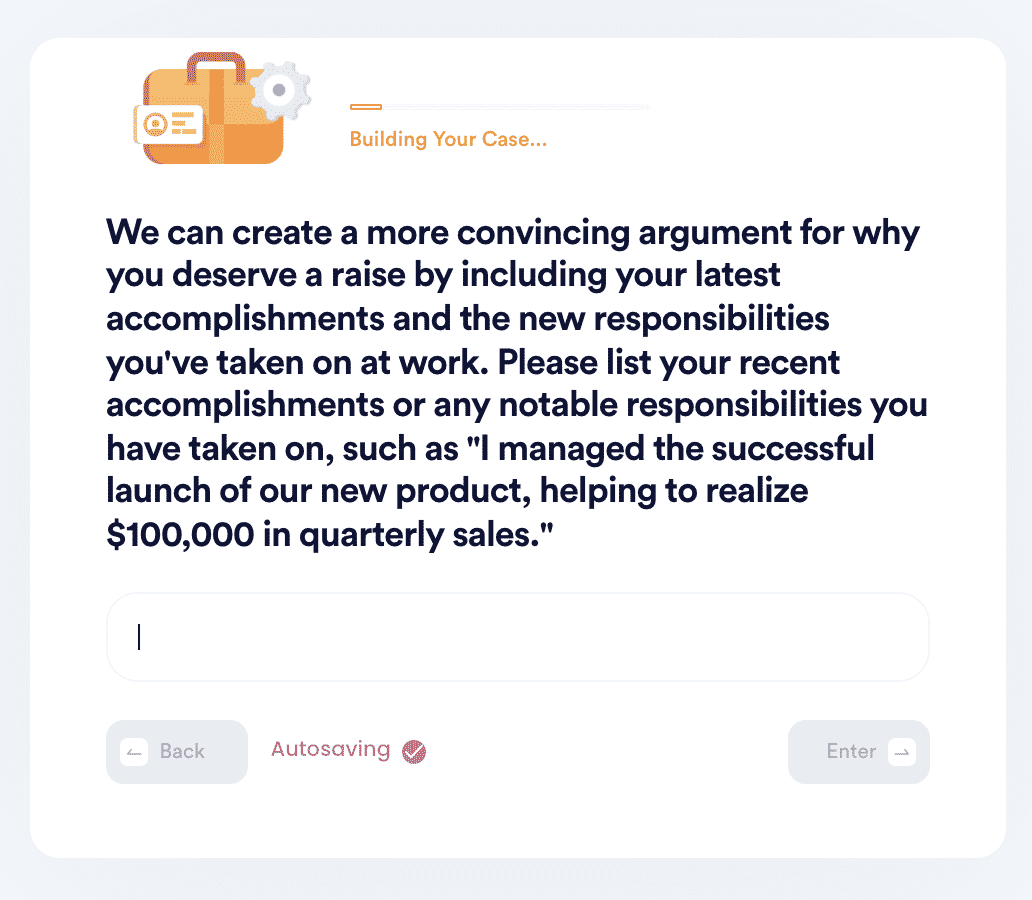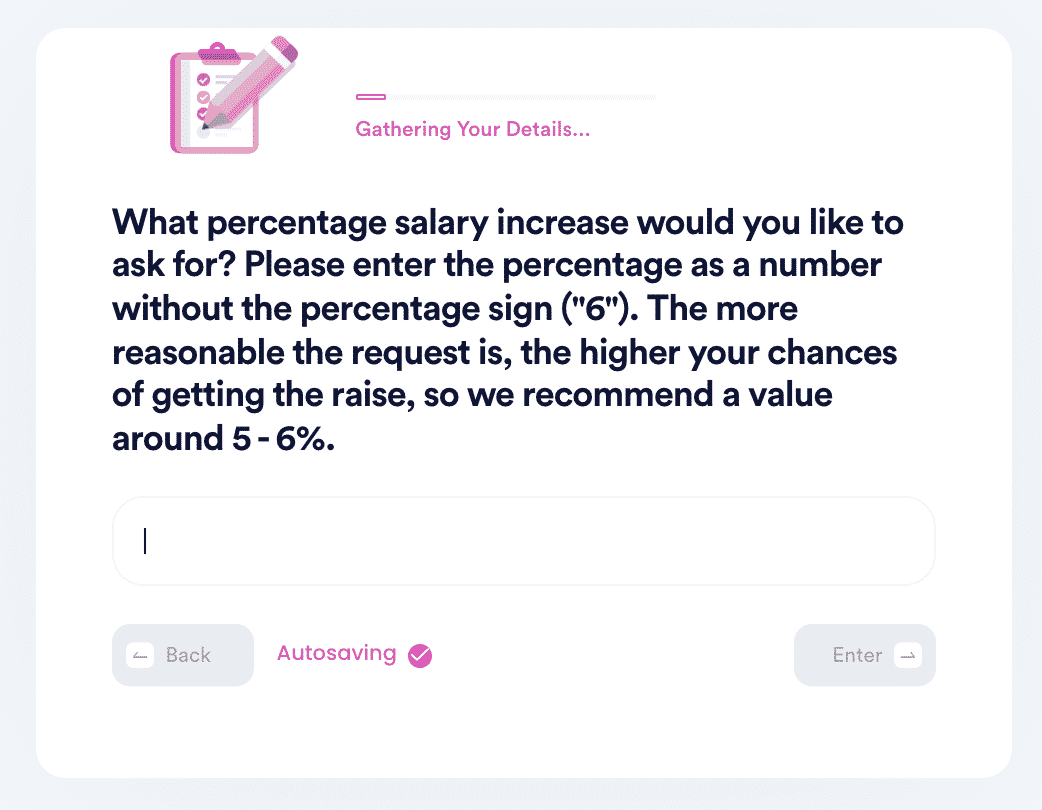Can You Negotiate Salary After Accepting Job Offer
When you're relieved and excited about being offered a job, it can be very simple to jump at the opportunity without even considering the salary. But, once you start to think about the salary and how you're going to work it into your budget, you may come to realize that accepting the salary the employer offered initially may be a mistake. So, can you ? The answer is yes, you certainly can. It may be a little difficult, but it's possible, especially with the help of DoNotPay.
Reasons Reopening Salary Negotiation After Accepting an Offer Is a Good Idea
Most individuals aren't comfortable negotiating their salary during their job interviews. They're likely scared of risking the opportunity. Therefore, they accept the offer with a "reasonable" salary amount. In many cases, by doing this, you could be settling for less than what you're actually able to get for that particular job.
If you're wondering yourself, "", consider the following reasons why it's a good idea:
- By not negotiating your salary, you could be harming your future earning potential.
- You have more responsibilities in your job description.
- Your skills are needed and you have a strong resume.
You may feel intimidated and uncomfortable with the idea of negotiating your salary after accepting the job. And, you won't be alone with these feelings. In fact, according to an Indeed survey, around 58% of the respondents said they rarely ever or never negotiate their salary. But, when you don't discuss your salary, it can impact your lifelong earning potential. For instance, if the average yearly salary in the U.S. is 3% and you accept a job with a starting salary that's 10% below what you expected, it can take more than two years to even regain those earnings.
If you're feeling anxious about salary negotiation, know this — employers typically expect a little negotiation from the candidates.
5 Tips for Negotiating Your Salary on Your Own After Accepting the Job Offer
If you've done some consideration and you've decided it's in your best interest to negotiate your salary but you've already accepted the job, you'll want to quickly get in touch with the person who hired you. Here is how to negotiate the salary once accepted for a position:
-
Express Your Reasons
Begin the salary negotiation conversation with the person who made you the initial offer either by phone or in person. You can do it by email, although this approach may not be as effective as doing it in person or by phone. Give them logical, clear reasons why you want to reopen the salary negotiation. Let them know you were not prepared earlier to negotiate salary because you didn't know all the job specifics or you can use an explanation that better suits your situation.
-
Take Your Timing Into Consideration
It's important that you take the timing of your request into consideration. If you've started the job already, it is likely too late to try and get an "immediate" raise. So, don't wait to have the conversation until:
- You've signed all the paperwork already.
- They've entered all your information into the system.
- You're on the job working.
If you're already in training, this is not the time to try and have your salary adjusted. For your request to be effective, you should make it between the time of your acceptance of the offer and before you actually begin working on the job. If you wait any longer than this, it will significantly decrease your chances of being able to negotiate a better salary.
-
Do Some Market Average Research
Having information about the market average can help support your case for a better salary. You can find this type of data by using Indeed Salaries. When you know the market average, it will provide you with a decent salary baseline for your request, and/or you can use it for justification. This tool uses past and present job salary postings on Indeed along with data anonymous Indeed users submit. Some questions you'll want to take into consideration when you're starting your market research are:
- What's the average in your specific area and nearby areas?
- What's the position's national average salary?
- What's the pay look like for similar companies in your location for this position?
-
Develop Talking Points
Get your talking points prepared. It may help you to answer the following question as a guideline for your conversation: Why do you believe you should receive a higher salary than what was offered to you? Then, you'll want to develop some talking points before you sit down to have that conversation with the employer.
-
Be Prepared to Be Declined
Often, salaries are already set in stone because they're based on budget or are being compared with other employees. You may not have much room for negotiation, even before accepting the job.
Once you've taken the job and accepted the offer, trying to renegotiate the salary may be a little tricky and your new employer may be reluctant to accept your new proposal.
As you've seen, it can be a tedious process trying to negotiate a salary once you've accepted the job; in some situations, unproductive. You can make the process much easier by using the services of DoNotPay.
DoNotPay will create a salary negotiation letter on your behalf that you can then present to your employer to obtain the salary you desire.
Extra Tips for Negotiating Salary After Accepting Job Offer
Here are some bonus tips for a better chance of higher pay:
| Be backed with hard data | If you’re going to renegotiate your salary, you better have evidence of what you are worth. Compile past achievements that justify your salary and how much you further help the institution. |
| Never make a snap decision (Again) | If it was too late to renegotiate, let it be a lesson and never make the same mistake when you get your next chance for salary negotiation. |
| Be confident | If you know you are worth more than they are offering don't be reluctant to renegotiate for higher pay. Advocating for yourself is a sign of confidence that can help you get the salary point you wanted. |
When Is It Too Late to Negotiate Salary?
Again, if you've already begun working on your new job, it's likely too late for you to try and renegotiate an immediate raise. At this point, you'll likely have to wait for your annual raise to negotiate a salary that both you and your employer are happy with.
How to Negotiate Your Salary With DoNotPay
All you have to do is:
- Search for 'Negotiate My Salary' on DoNotPay.

- Fill in your company's name and the industry you're in for us to compile wage statistics in your field.

- Write your achievements and qualifications.

- Enter your preferred base salary.

And that's it! Once the information is finalized, DoNotPay will generate an official salary negotiation letter that you can then email or present to your employer!
What Else Can DoNotPay Do?
DoNotPay doesn't just help with salary negotiation after you've accepted a job offer. Anytime during your employment, DoNotPay can help you:
- Asking for a Raise
- Asking for a raise via email
- When you should ask for a raise
- How much of a raise you should ask for
- How often should you ask for a raise
DoNotPay not only helps you with the salary negotiation process and getting a raise, but they provide various other types of services you may be interested in or need, including:
- Cancellations
- Reducing property taxes
- Obtaining chargebacks and refunds
- Fighting discrimination in the workplace
Whether you're in the early interview stages of a job offer or you've already accepted a job offer and agreed to a specific salary, DoNotPay can help you negotiate the salary you desire.


